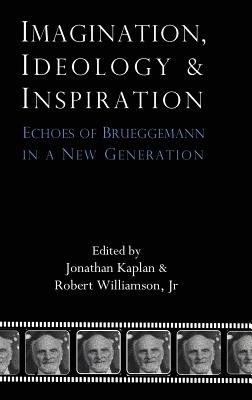
- We will send in 10–14 business days.
- Publisher: Sheffield Phoenix Press Ltd
- Year: 2015
- Pages: 352
- ISBN-10: 1909697788
- ISBN-13: 9781909697782
- Format: 15.6 x 23.4 x 2.1 cm, hardcover
- Language: English
- SAVE -10% with code: EXTRA
Imagination, Ideology and Inspiration (e-book) (used book) | bookbook.eu
Reviews
Description
By any account, Walter Brueggemann stands as one of the foremost interpreters of the Hebrew Bible of the past half-century. Yet the question remains of what his influence will be on the next generation of biblical scholars, who have learned from Brueggemann and taken his work in new and often surprising directions. This volume engages that question by presenting the work of fourteen of Brueggemann's former students at Columbia Theological Seminary (Decatur, Georgia) who are now biblical scholars in their own right, asking how his influence has been received and transformed by them. Essays in this volume present imaginative new readings of wellknown texts, from the crisis of God in Genesis 22 to God's birthing body in Job 38. They engage the ideology of the text, discovering the voice of a female prophet in the book of Isaiah, a Job in drag, and a feminist Qohelet. They grapple with the implications of the text for contemporary life, from reading Lamentations after Hiroshima to considering how the production of Bibles is an act of ideological control. While clearly resonating with Brueggemann's work, these essays also take his influence in new directions, from deeper engagement with rabbinic interpretation to the ncorporation of new theoretical perspectives from Lacan to Zizek to Deleuze and Guattari. An introduction by Brent Strawn considers Brueggemann's influence in the field more generally, while a response from Carolyn Sharp offers soundings for a new generation of scholars.
EXTRA 10 % discount with code: EXTRA
The promotion ends in 20d.18:54:59
The discount code is valid when purchasing from 10 €. Discounts do not stack.
- Publisher: Sheffield Phoenix Press Ltd
- Year: 2015
- Pages: 352
- ISBN-10: 1909697788
- ISBN-13: 9781909697782
- Format: 15.6 x 23.4 x 2.1 cm, hardcover
- Language: English English
By any account, Walter Brueggemann stands as one of the foremost interpreters of the Hebrew Bible of the past half-century. Yet the question remains of what his influence will be on the next generation of biblical scholars, who have learned from Brueggemann and taken his work in new and often surprising directions. This volume engages that question by presenting the work of fourteen of Brueggemann's former students at Columbia Theological Seminary (Decatur, Georgia) who are now biblical scholars in their own right, asking how his influence has been received and transformed by them. Essays in this volume present imaginative new readings of wellknown texts, from the crisis of God in Genesis 22 to God's birthing body in Job 38. They engage the ideology of the text, discovering the voice of a female prophet in the book of Isaiah, a Job in drag, and a feminist Qohelet. They grapple with the implications of the text for contemporary life, from reading Lamentations after Hiroshima to considering how the production of Bibles is an act of ideological control. While clearly resonating with Brueggemann's work, these essays also take his influence in new directions, from deeper engagement with rabbinic interpretation to the ncorporation of new theoretical perspectives from Lacan to Zizek to Deleuze and Guattari. An introduction by Brent Strawn considers Brueggemann's influence in the field more generally, while a response from Carolyn Sharp offers soundings for a new generation of scholars.


Reviews